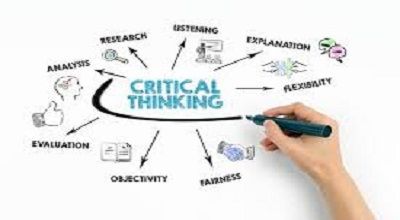Teach Critical Thinking
Yes, it is possible and indeed valuable to teach critical thinking in schools. Critical thinking is the ability to analyze, evaluate, and synthesize information thoughtfully and systematically. It involves the ability to think independently, question assumptions, consider different perspectives, and make reasoned decisions. Teaching critical thinking skills in schools can have a positive impact on students’ academic performance, problem-solving abilities, and overall cognitive development. Here are some ways to promote critical thinking in educational settings:
Incorporate Critical Thinking into the Curriculum:
- Design lessons and activities that encourage students to analyze information, question assumptions, and draw logical conclusions.
- Integrate critical thinking skills into various subjects, such as English, science, mathematics, and social studies.
Encourage Questioning:
- Create a classroom culture that values asking questions and exploring different viewpoints.
- Encourage students to ask why, how, and what-if questions to deepen their understanding of concepts.
Promote Discussions:
- Foster classroom discussions where students can express their opinions, listen to others, and engage in constructive debates.
- Provide opportunities for students to defend their ideas with evidence and consider alternative perspectives.
Use Real-World Examples:
- Incorporate real-world scenarios and case studies into lessons to show the practical application of critical thinking skills.
- Connect classroom learning to current events and issues.
Problem-Based Learning:
- Use problem-solving activities and projects that require students to apply critical thinking skills to find solutions.
- Encourage collaborative projects that promote teamwork and shared decision-making.
Teach Metacognitive Skills:
- Help students develop metacognitive skills, such as self-reflection and self-awareness, to enhance their ability to monitor and control their own thinking processes.
Evaluate Information Sources:
- Teach students how to critically evaluate the reliability and credibility of information sources, especially in the age of abundant online information.
Provide Feedback:
- Offer constructive feedback that focuses on the development of critical thinking skills.
- Encourage students to reflect on their own thinking and learning processes.
Critical Thinking Courses:
- Introduce specific courses or modules dedicated to critical thinking skills, providing students with a focused and systematic approach to developing these skills.
By incorporating these strategies into the educational system, schools can contribute to the development of student’s critical thinking abilities, preparing them for a more complex and rapidly changing world.
